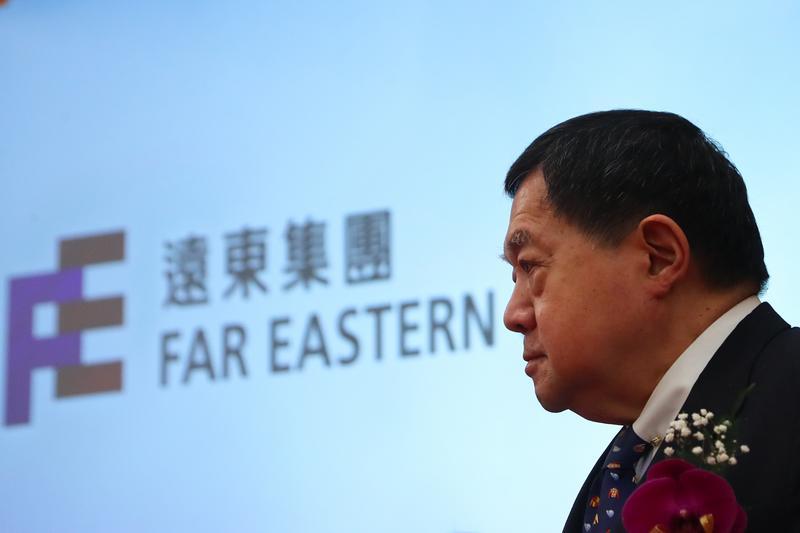Beijing is targeting Taiwanese companies with links to Tsai’s Democratic Progressive Party
Taiwanese conglomerate Far Eastern Group (FEG) was recently fined in mainland China for problems such as “fire safety,” but the real problem appears to be politics: FEG is linked to officials in Taiwan that Beijing considers to be “‘Taiwan independence’ stubborn elements,” whose “affiliates and financial backers must be punished.”

Yesterday, Chinese state media reported that Far Eastern Group (FEG), a Taiwanese conglomerate with diverse interests from hotels to textiles, was fined 36.5 million yuan ($5.72 million) for “a series of problems, from tax to fire safety, and that the investigation was continuing,” per Reuters. But there was good reason to suspect that the real reason for the legal action against FEG at this time had more to do with politics than fire safety:
- One of FEG’s listed units told Reuters that “its textile operations in China had been inspected by law enforcement in the second quarter” with no such problems being flagged.
- Beijing’s Taiwan Affairs Office was asked about the situation, and after repeating the official reasons for the fines, added (in Chinese) that “‘Taiwan independence’ stubborn elements…affiliates and financial backers must be punished.”
- The same office had, on November 5, singled out (in Chinese) three politicians in Taiwanese President Tsai Ing-wen’s (蔡英文 Cài Yīngwén) Democratic Progressive Party (DPP) as among these “stubborn elements”: Premier Su Tseng-chang (蘇貞昌 Sū Zhēnchāng), president of the Legislative Yuan You Si-kun (游锡堃 Yóu Xīkūn), and Minister of Foreign Affairs Joseph Wu (吴钊燮 Wú Zhāoxiè).
The connection between FEG’s punishment and links to Taiwan’s DPP was essentially confirmed today by the Global Times, the state-owned nationalistic tabloid that often represents the id of the Chinese Communist Party.
“Chinese mainland punishes pro-secessionist Taiwan companies ‘for better cross-Straits economic ties, to push reunification’” is the title of the article that Global Times published, and it goes into detail on the connections between FEG and the DPP.
FEG donated NT$58 million ($2.09 million) to the DPP in the 2020 regional legislative elections, making it the DPP’s biggest donor…
FEG is the main investor of die-hard Taiwan secessionist Su Tseng-chang and his daughter. In the 2020 election in Taiwan, FEG donated NT$68 million to the DPP and KMT, becoming the largest sponsor. In the latest lawmaker election, the group donated to 31 DPP members and 14 KMT members…
In addition to political donations, according to Taiwan media reports, the FEG is one of the Taiwan companies which have openly supported secessionist DPP candidates by advertising openly during the election process.
The Global Times cites unnamed analysts who “stressed that as long as Taiwan entrepreneurs do not support Taiwan secessionists, they do not need to be worried at all,” and adds, “Opposing secessionism is to create a better business environment…said a Beijing-based senior expert on Taiwan-related affairs who asked for anonymity.”
There does not appear to be a Chinese version of this Global Times article, but the newspaper’s Chinese-language site does have an article quoting Wáng Xìnxián 王信贤 of Taiwan Chengchi University as saying that the punishment of FEG was “definitely political” and related to the new stance of Beijing’s Taiwan Affairs Office.
China news, weekly.
Sign up for The China Project’s weekly newsletter, our free roundup of the most important China stories.
Is Foxconn also in for rectification?
“Other DPP donors in 2020 included Highwealth Construction, which donated NT$11.6 million and Hon Hai Technology Group, known as Foxconn, which financed NT$4 million,” the Global Times notes, though the article suggests that FEG was picked as an “example to warn Taiwan companies with similar backgrounds and behaviors.”
The warning to Taiwanese companies with links to the DPP is reminiscent of an action that Beijing took earlier this year by banning imports of Taiwanese pineapples, which are disproportionately grown in DPP-aligned voting districts. That campaign eventually backfired, as other buyers, including Japan, stepped in to substitute for the lost demand.
See also:
- Taiwan talks chips, Chinese ‘coercion’ in U.S. meeting / Reuters
- Chinese critics express dismay over Taiwan chip maker TSMC’s compliance with Washington’s semiconductor data request / SCMP (paywall)
- China downgrades diplomatic relations with Lithuania over Taiwan ties / FT (paywall)
- EU says Taiwan’s Lithuania office not a breach of policy / Taipei Times






